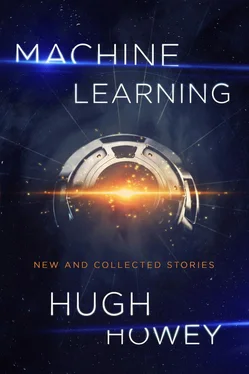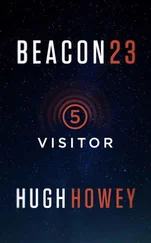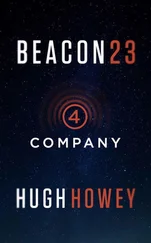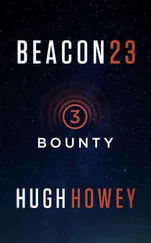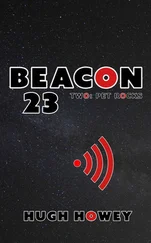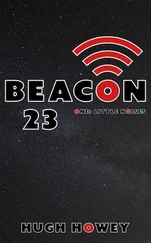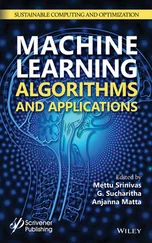“There was a wreck—” His wife points her phone up the embankment toward the hidden blacktop and the now-silent traffic. John steadies her, but he can feel her tugging him up the slope, eager to help those in need.
“They’re all gone,” he says. “Everyone. Everyone we knew. Everyone is gone.”
Barbara looks at him. Emily stares up at him. Wide eyes everywhere. “You knew…” his wife whispers, piecing together the sudden stop on the shoulder of the road and what happened after. “How did you know—?”
John is thinking about the Explorer. Their car is totaled. He’ll have to get another. There’s a vast selection nearby. “Wait here,” he says. He hopes everything he packed can be salvaged. As he heads up the embankment, Barbara moves to come with him.
“Keep Emily down here,” he tells her, and Barbara gradually understands. Emily doesn’t need to see what lies up there on the interstate. As John trudges up the slick grass, he wonders how he expects his daughter to avoid seeing it, avoid seeing the world he helped make.
One Year Before
Smoke curls from Tracy’s cigarette as she paces the hotel room in Milan. John lies naked on top of the twisted sheets. The rush of hormones and the buzz of alcohol have passed, leaving him flushed with guilt and acutely aware of what he has done.
“You should move to Italy,” Tracy says. She touches the holstered gun on the dresser but does not pick it up. Inhaling, she allows the smoke to drift off her tongue.
“You know I can’t,” John says. “Even if it weren’t for my family… I have—”
“Work,” Tracy interrupts. She waves her hand as if work were an inconsequential thing harped on by some inferior race. Even when the two of them had worked down the hall from each other in the Pentagon, neither had known what the other did. The confusion had only thickened since, but along with it the professional courtesy not to ask. John feels they both want to know, but tearing clothes off bodies is simpler than exposing hidden lives.
“I do sometimes think about running away from it all,” John admits. He considers the project taking most of his time of late, a plan he can only glimpse from the edges, piecing together the odd tasks required of him, similar to how he susses out political intrigue by whom he is hired to remove and who is left alone.
“So why don’t you?” Tracy asks.
John nearly blurts out the truth: Because there won’t be anywhere left to run. Instead, he tells a different truth: “I guess I’m scared.”
Tracy laughs as if it’s a joke. She taps her cigarette and spills ash onto the carpet, opens one of the dresser drawers and runs her fingers across John’s clothes. Before he can say something, she has opened the next drawer to discover the book.
“A Bible,” she says, sounding surprised.
John doesn’t correct her. He slides from the bed and approaches her from behind in order to get the book. Tracy glances at him in the mirror and blocks him, presses back against him, her bare skin cool against his. John can feel his hormones surge and his resistance flag. He forgets the book, even as Tracy begins flipping through it. She was always curious. It was trouble for them both.
“Looks more interesting than a Bible,” she mutters, the cigarette bouncing between her lips. John holds her hips and presses himself against her. She complies by pressing back. “What is this?” she asks.
“It’s a book about the end of the world,” John says, kissing her neck. This is the same thing he told Barbara. John has come to think of the book as one of those paintings that blurs the closer you get to it. It is safe by being unbelievable. The hidden key to understanding it—knowing who wrote it—was all that needed keeping safe.
Pages are flipped, which fans smoke above their heads.
“A different Bible, then,” Tracy says.
“A different Bible,” John agrees.
After a few more pages, the cigarette is crushed out. Tracy pulls him back to the bed. Afterward, John sleeps and dreams a strange dream. He is laying Barbara into a crypt deep beneath the soil. There is a smaller coffin there. Emily is already buried, and it is a lie that they’ll ever be unearthed. It is a lie that they’ll be brought back to life. That’s just to get him to go along. John will live on for hundreds of years, every day a torment of being without them, knowing that they are just as dead as the others.
John wakes from this dream once and is only dimly aware that the bedside light is on, smoke curling up toward the ceiling, fanned by the gentle turning of prophetic pages.
The cars are, for the most part, orderly. They sit quietly, most of them electric, only one or two idling and leaking exhaust. They are lined up behind one another as if at any moment the trouble ahead might clear and the traffic will surge forward. Brake lights shine red. Hazards blink. The cars seem alive. Their occupants are not.
John considers the sheer weight of the dead—not just around him on the highway, but an entire world of the dead. An entire world slaughtered by men in elected posts who think they know best. How many of those in these cars voted for this? More than half, John thinks grimly.
He tries to remind himself that this is what someone else would’ve done, some mad dictator or mountain hermit. Eventually. The technology would’ve trickled out—these machines invisible to the naked eye that are just as capable of killing as they are of healing. When fanatics in basements begin to tinker, the end is near enough in the minds of many. No exotic or radioactive materials to process. Instead, machines that are becoming rapidly affordable, machines that can lay down parts one atom at a time, machines that can build other machines, which build more machines. All it will take is one madman to program a batch that sniffs out people by their DNA before snuffing them out.
John remembers his sophomore year of high school when he printed his first gun, how the plastic parts came out warm and slotted neatly together, how the printed metal spring locked into place, how the bullets chambered a little stiff with the first round and then better and better over time.
That was something he could understand, printing a weapon. This… this was the next generation’s music. These were the kids on his lawn. He was one of their parents pulling the stereo plug before anyone made too much trouble.
John picks out a black SUV in the eastbound lane. A gasser, a Lexus 500. He has always wanted to drive one of these.
Lifeless eyes watch him from either side as he approaches, heads slumped against the glass, blood trickling from noses and ears, just these rivulets of pain. John wipes his own nose and looks at his knuckle. Nothing. He is a ghost, a wandering spirit, an angel of vengeance.
There is a wreck farther ahead, a car on manual that had taken out a few others, the cars around it scattered as their auto-drives had deftly avoided collision. He passes a van with a sticker on the back that shows a family holding hands. He does not look inside. A dog barks from a station wagon. John hesitates, veers from his path toward the SUV and goes over to open the door. The dog does not get out—just looks at him with its head cocked—but at least now it is free. It saddens John to think of how many pets just lost their owners. Like the people stranded up in the sky, there is so much he didn’t consider. He heads to the SUV, feeling like he might be sick.
He tries the driver’s door on the Lexus and finds it unlocked. A man with a loosened tie sits behind the wheel, blood dripping from his chin. The blood has missed his tie to stain the shirt. A glance in the back shows no baby seat to contend with. John feels a surge of relief. He unbuckles the man and slides him out and to the pavement.
Читать дальше
